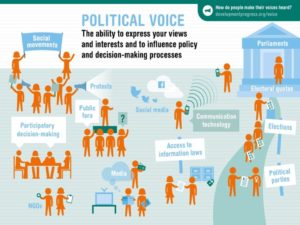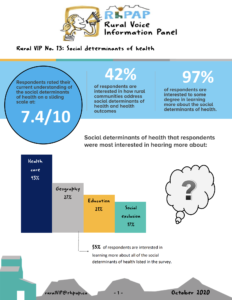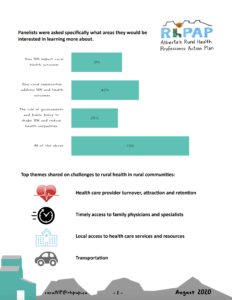Rural communities have many reasons to advocate for services and infrastructure that support rural health. In this section, explore resources to help you advocate for your community’s needs. Click the expandable menu below for articles about the ways in which citizens can advocate for their communities’ needs.
Citizen Participation in Policy Advocacy
In a democracy it is important for all citizens to participate in the policy making process of governments. Governments are elected to represent the interests of the people they serve. Citizens have lived experience within their communities and they interact with systems like health care and education in ways that are hard to see from the outside. Policies must reflect the needs and realities of the people they affect. As citizens, it is important to speak out in support and also challenge government policies depending on your point-of-view – this is called advocacy.
Citizen participation can take many forms, like voting and sitting on a jury. Participation can also happen in informal ways, including becoming knowledgeable on a topic area of interest, sharing experiences, and through discussion and debate. Advocacy is another tool. It means showing public support for an idea, plan, or way of doing something. Advocacy can lead to better government representation and policies.

Citizen advocacy for health care can feel daunting at first, but there are many great platforms and resources in Alberta to help people become more engaged in a cause.
One approach to citizen advocacy is to participate in committees and special interest groups. Depending on the time available, as well as personal interests and expertise, different options are available to explore. These include monthly surveys, group memberships, story sharing platforms, as well as online meetings.
Below are some opportunities to engage in rural health:
- Health Advisory Council, Alberta Health Services
- Together 4 Health, Alberta Health Services
- Community Conversations, Alberta Health Services
- Patient & Family Advisory Group, Alberta Health Services
- Health Coalition of Alberta
- Patient Voice, Canadian Medical Association
Another approach to citizen advocacy is to reach out to elected officials to share personal experiences, concerns, and ideas. Ways to connect with officials are through social media, email, letters, or arranging a meeting at their office. Response from a social media post or an email may be quick but lack detail, so a personal meeting may be more effective. However, government officials are busy and a meeting may be challenging to arrange. The choice of contacting a government official also depends on the timeliness or urgency of the issue and whether or not to include others in the communication.


